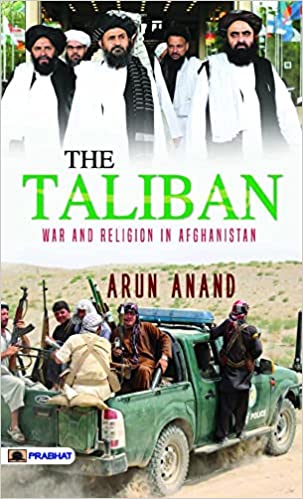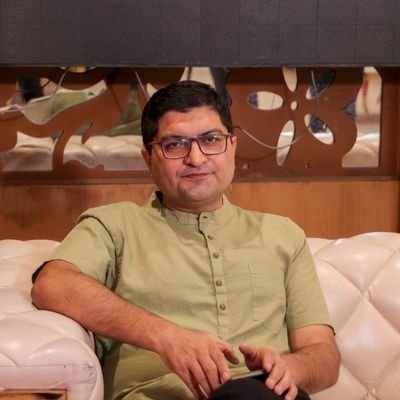
Afghanistan is often called the ‘graveyard of empires’ but in reality, it is simply a graveyard where empires go to wage their wars. It is land that has been invaded first by the Persians, Greeks, and then the Arabs who brought Islam after a long struggle against the Hindus and Buddhists who lived there, and later the Mongols under Genghis Khan and many more. However, the two most famous words uttered over one hundred fifty years ago by a British Army officer named Arthur Connolly who coined the term, “Great Game” still resonates one way or another in Afghanistan. Since then its fortune has always been decided by foreigners.
In the beginning, the great game was played between Great Britain and Russia. After the end of the Second World War, the United States of America emerged as the richest and most powerful nation in the world and four decades later Afghanistan became the center of the “Cold War” when the Soviet Union invaded Afghanistan. The US used Pakistan which has been its client state since 1947, as its base to supply weapons to mujahadeen, Islamic religious fighters who were waging a Jihad against the Soviet Union who had occupied a Muslim country, and from this emerged the Taliban, which had the most parochial views on Islam.
The book ‘The Taliban, War, and Religion in Afghanistan‘ written by Arun Anand makes a sincere and serious attempt to understand the rise, the ouster, and the re-emergence of the Taliban in Afghanistan. The author has tried to give an evidence-based answer to questions on what is the genesis of the Taliban and what mistakes the US made that allowed its return to power twenty years later. The book is a very easy read and the author has written chapters that give insight into a country that has a complex ethnic, cultural, and religious mix that makes nation-building very difficult (Page 14).
The author has tried to give an evidence-based answer to questions on what is the genesis of the Taliban and what mistakes the US made that allowed its return to power twenty years later.
If that was not enough, its Southern neighbor, Pakistan which sees Afghanistan as its geopolitical and geostrategic domain has done nothing but tear this country apart. Its notorious Inter-Services Intelligence (ISI) was created just a few years after partition by an Australian-born British army officer named Major General Walter Joseph Cawthorne (Page 101) which has now transformed into a deep state. The ISI has a history of supporting non-state actors to carry out its missions within and outside of the country and it has vast resources to fund its operations by receiving monies from the government and through the drug trade, counterfeit money, and donation from abroad (Page 109). The fact is ISI did business with anyone in Afghanistan to have a piece of the action in the drug trade.
After the invasion of Afghanistan by the Soviet Union, Pakistan became the base for Afghan Mujahedeen, and Muslims came from all corners of the world to wage Jihad against the Soviet Union. After the Soviets left, Pakistan played a very important role in the civil war as it wanted a government that it could influence. This book gives insight into how Pakistan provided intelligence, money, and training to the Taliban as it took control of most of Afghanistan. It also talks about the duality of Pakistan and how it played one against the other to get what it wants and the author has gone to some lengths to explain it.

After the 9/11 terror attacks which were carried out by Al Qaeda and its Amir Osama Bin Laden who had found refuge under the Taliban, the US which had plenty of experience in this region and had once funded and worked closely with the Taliban to defeat the Soviet Union misread the situation. It lost opportunities due to complacency, arrogance, and its failure to prepare a strong Afghan security apparatus (Page 136-137).
One of the opportunities was to get some part of the Taliban in the new government as it was a loose federation of warlords. By equating the Taliban with Al Qaeda, the US allowed its revival inside Pakistan which is never addressed as many of its leaders feared incarceration in a US jail and some of them did end up in Guantanamo Bay Cuba.
By equating the Taliban with Al Qaeda, the US allowed its revival inside Pakistan which is never addressed as many of its leaders feared incarceration in a US jail and some of them did end up in Guantanamo Bay Cuba.
As the US got more deeply embroiled in Iraq, its focus shifted to only tracking down Al Qaeda terrorists and Bin Ladin. The Taliban now become a problem for the Afghan government to resolve. This terrible oversight has now put entire Central Asia in flux and particularly Pakistan which has been the architect of Afghanistan’s misery for over half a century. As far as India is concerned, Pakistan will always block Indian influence in Afghanistan, as it fears that an Afghanistan without the Taliban would become an Indian client state, denying Pakistan its strategic depth. However, it seems Pakistan’s desire to make Afghanistan its backyard has backfired and in the near future, Pakistan is most likely to become the front yard of Afghanistan.
The book makes a very easy read and is uncomplicated in its message. It is divided into thirty chapters that explain the genesis of the Taliban with the historicity of Afghanistan to give an insight into this region.
There have been people in Afghanistan who tried to make a difference and once there was peace. There have been men and women who wanted Afghanistan shaped by their dreams and were not bound by any irrational fears but poor policy decisions coupled with politics and vested interests, peace is yet to return. Fact is, Afghanistan is a labyrinth with a complicated and irregular history that many have failed to understand or learn from past mistakes. For the great conquerors, Afghanistan with its high mountains and beautiful valleys has always been the ultimate price and in that process, they have left behind a wake of sorrow and dust.
(The views expressed are author’s own)
Book: The Taliban, War, and Religion in Afghanistan
Author: Arun Anand
Publishers: Prabhat Books
Price (Hardcover): ₹ 300
SW Ratings: ****
Balaji is a freelance writer with an MA in History and Political science and has published articles on defence and strategic affairs and book reviews. He tweets @LaxmanShriram78. Views expressed are the author’s own.

For such a complex issue, the book seems to be pretty coherent and compelling! Will definitely give it a read👍🏻👍🏻